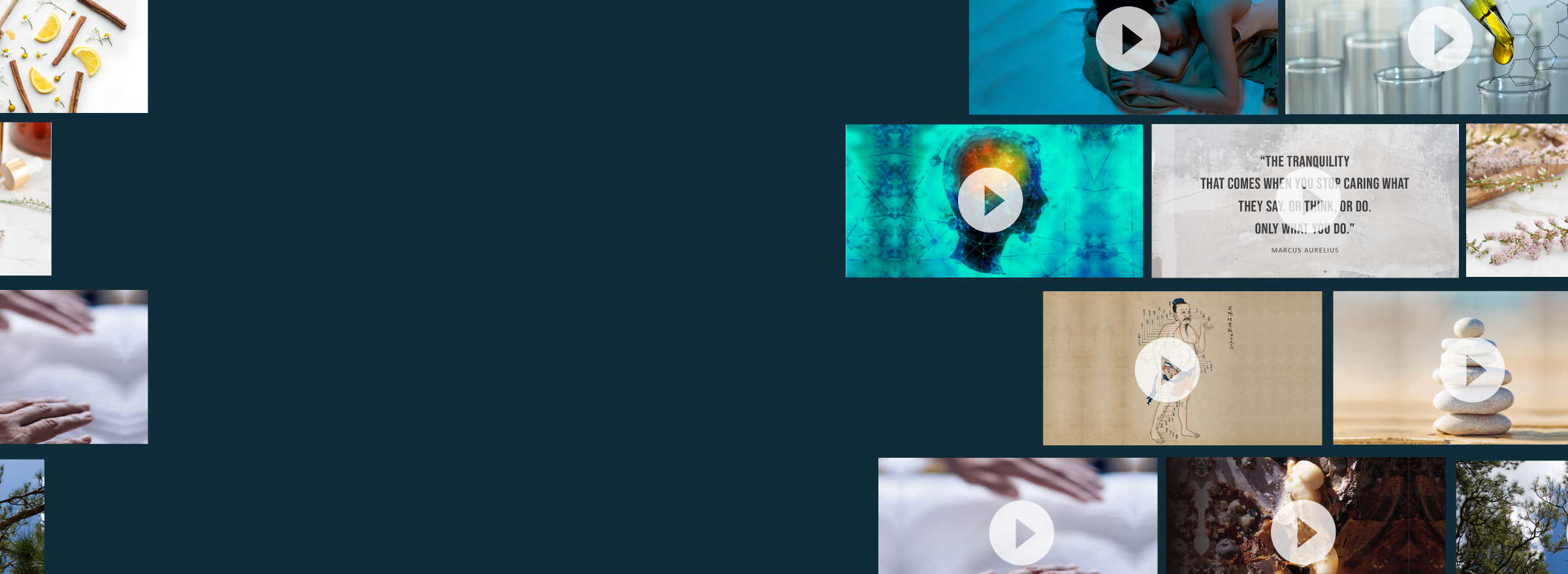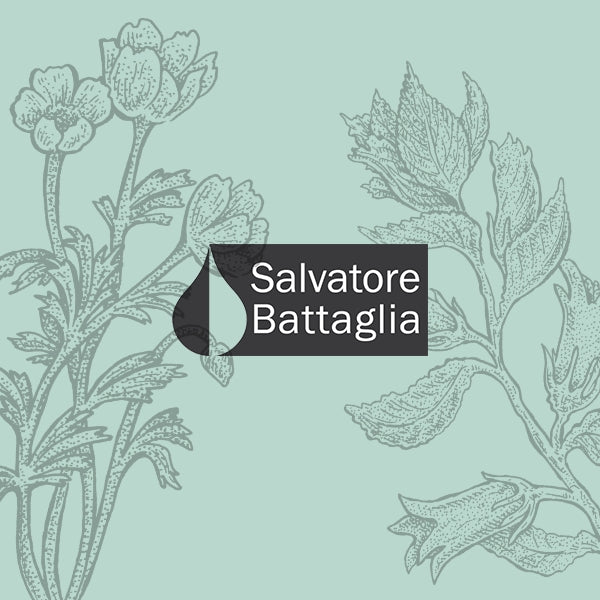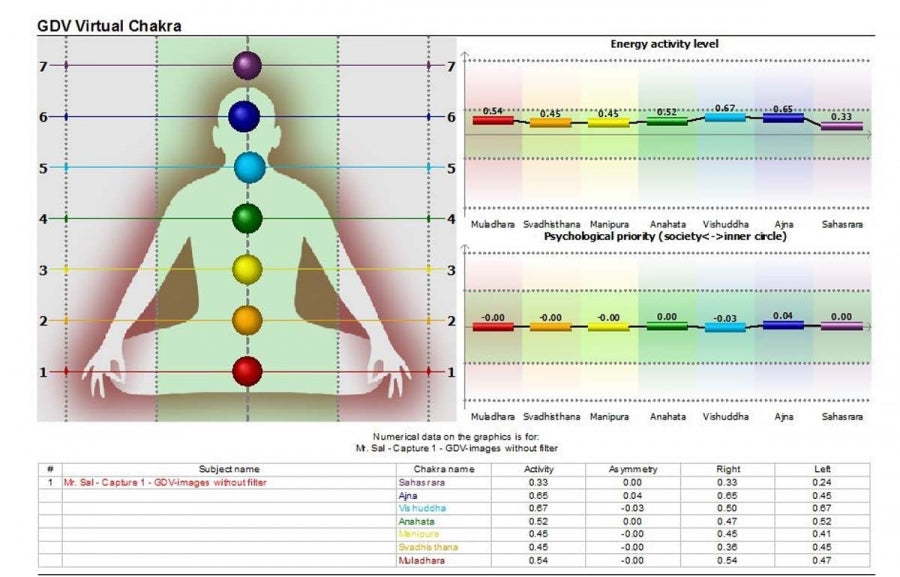By Salvatore Battaglia
Introduction
Many of us consider blending of essential oils as the fun, playful aspect of aromatherapy. It can become a very enjoyable hobby. However, blending essential oils is an art, and like any art it requires a balance of practice, skills and intuition.
Fischer-Rizzi eloquently explains why many of us are attracted to essential oils:1
Getting to know these heavenly scents is something like falling in love. They will touch your heart, make you more keenly aware of the beauty surrounding you, and open the door to your soul. Suddenly, every facet of your life will seem touched by magic.
Essential oils encapsulate the scent of nature that we find so alluring. The allure of scent has been beautifully described by Master Perfumer, Roja Dove:2
It is often said that our eyes are the window to our soul. I believe them merely to be observers, whereas our nose absorbs the world life essences. Since the dawn of civilisation, perfumes have been with us, evolving within the complex fabric of the human psyche and culture. Scent is intangible. It can touch us, move us, and inspire our very being. It can transform us into seducers or seductresses, elevating and transporting us to an ethereal realm of memories and sensations.
He goes on to explain that power of scent is able to rekindle long lost memories. That nothing but a perfume is able to transport us from the mundane world to a temporal world of fantasy and escapism. He describes perfumes as the alchemist’s magical creations that can evoke the warm fields of Provence, the exotic pleasures of the East, or the bright fast cities.
I hope that the purpose of your perfume will not be the same as that of Grenouille, the protagonist in the novel Perfume – the story of a murderer. Süskind, perfectly describes the power and the allure of a beautiful perfume creation:3
He would create a scent that was not merely human, but superhuman, an angel’s scent, so indescribably good and vital that whoever smelled it would be enchanted and with his whole heart would have to love him, Grenouille, the bearer of that scent.
Yes, that was what he wanted – they would love him as they stood under the spell of his scent, not just accept him as one of them, but love him to the point of insanity, of self-abandonment, they would quiver with delight, scream, weep for bliss, they would sink to their knees just as if under God’s cold incense, merely to be able to smell him, Grenouille!
He would be the omnipotent god of scent … for people could close their eyes to greatness, to horrors, to beauty, and their ears to melodies or deceiving words. But they could not escape scent. For scent was a brother of breath. Together with breath it entered human beings, who could not defend themselves against it, not if they wanted to live, and scent entered into their very core, went directly to their hearts, and decided for good and all between affection and contempt, disgust and lust, love and hate. He who ruled scent ruled the hearts of men.
Is perfumery an art?
When I say ‘The Art of the Perfumer’, let me explain this phrase, which might otherwise appear ambitious.
The first musician who tried to echo with a pierced reed songs of the birds of the forest, the first painter who attempted to delineate on a polished surface the gorgeous scenes which he beheld around him, were both artists endeavouring to coy nature;
and so the perfumer,
with his limited number of materials at his command, combines them like colours on a palette, and strives to imitate the fragrances of all flowers which are rebellious to his skills, and refuse to yield up their essence.Is he not, then, entitled to claim also the name of an artist, if he approaches even faintly the perfections of his charming models? 4

This must have been Sal in a past life
Gerard Valck, after Nicholas de Larmessin II, ‘Habit de Perfumeur’ (1695-1720). Engraving © Trustees of the British Museum
While this quote, by a famous English perfumer, Rimmel, is over 140 years old it is just as relevant now as it was back then.
Biox Camps explains that perfumers are often torn between dualities such as intellect and intuition, the conscious and the unconscious, the conventional and the unconventional, and the complexity and simplicity. As a perfumer and chemist, he states that the process of creative thinking in artistic and scientific pursuits have much in common:5
The artist places more importance on feeling and individual expression, often going to extremes to divorce himself from environmental constraints. The scientist relies more on disciplined, logical thinking to lead him in new directions. Artistic endeavor is dominantly expressive (although clearly oriented towards a goal), while scientific inventiveness is dominantly disciplined (although flexibly receptive to feelings and to imaginative experiences). I am obsessed with people that combine both impulses: noble artistic creativity and feelings (closely related to inherent wisdom) and scientific creativity (related more to ‘rational knowledge’ than inherent wisdom).
Boix Camps states that he desires to use the same emotions in his perfumery his artistic mentors use to create poems and music. He cites Vinicius De Moraes’ poem Acalanto da Rosa or Lullaby of the Rose:5
A star sleeps in the sky,
The rose sleeps in its garden
the moon rests in the sea,
love sleeps inside of me.
You must tread softly,
Ah, you must not speak.My love is slumbering,
How sweet is her perfume,
Sleep in peace, pure rose,
Your slumber has no end.
Boix Camps explains that Moraes’ words are always deeper and more beautiful than any of results as a perfumer. He states that perfumery should strive for the same eternal beauty attained by Moraes’ works. He believes that philosophy and practical formulation skills are inherently entwined in the creation of a great perfume.5
Boix Camps is very philosophical about his art as a perfumer. In a paper published back in 1999 entitled Perfumery: Techniques in Evolution IV, he laments that so many contemporary perfumes lack a soul found in many essential oils and that the industry is heavily reliant on marketing. He states that the art of perfumery should be flourishing with so many new ingredients being discovered in order to boost a perfumer’s creativity.6
Perfumery is lately being made up with synthetics such as Iso E super, tonalid, vertofix, hediones and helionals formulas that can now be generated by a computer. He states how can there be heart when there is no art. He claims that a true perfumer is not a ‘nose’ but a human being, a mind and a philosopher who tries to express a sensibility, and who offers it to us to get to know it and appreciate it. He suggests that the purpose of his profession is to heighten awareness by means of created beauty. However, he laments that the society in which we live is marked by extreme materialism. It lacks a spiritual truth, leading to disenchantment, frustration and insufficiency of ideals and dreams. He is critical of the marketing of perfumery that has debased the most sublime aspects of the profession of perfumery.6
Today, the star of our epoch is a technified and icy frozen society that preaches while promoting aggressiveness; that talks about love and culture while provoking alienation and desolation; that dehumanises women and men and objectifies them to such an extent that they are no longer persons and have become mere consumption objects.6
He goes on to explain that we live in a world close to desolation; desolation of the soul, of the spirit, of mystery, of human values. He then reminds us of the beauty in natural scents:6
I can still smell the purity of real tuberose that so lavishly grows in so many places in India and Pakistan. I can go to the eastern Indian state of Orissa and feel the exoticism of the flowers of Kewra … There also is the yellowish champa; I love mixing it with the natural attar of saffron while experiencing the beguiling scent of real jasmine sampac used as a perfume by many Indian girls that place the flowers on their long hair every evening when an orange sunset can be seen.
He asks, why do we see the faithfulness to the smell of natural flowers rejected in so many of the modern fragrances that are launched with lavish advertisements? He wonders if we have been ‘brainwashed’ by Western marketing.6
I think that question is easy to answer – modern perfumers rarely use pure essential oils anymore and indeed Boix Camps is correct in stating that the modern consumer has been brainwashed by Western marketing.
Boix Camps also makes an interesting comment, questioning if it is wise to continue diluting fragrances with something as unstable as ethyl alcohol. He asks if it would not be better to market simple, pure fragrances, as was traditional in the Orient and to teach the consumer that the perfume is what matters.6
Boix Camps laments that there is not much ‘art’ in the profession of perfumery. Art, he claims, is the expression of our most sublime feelings, through odours, colours, words or notes, without expecting anything in return for this expression. He is critical of the concept of ‘design’ in our world. He states that design of refers to something that is shallow and artificially beautiful, made quickly, for an immediate sale. Design creates fashions, fashions unlike arts, are volatile, ethereal, and go with the first blow of wind.6
Advice from natural perfumers
McCoy asked six natural perfumers to comment on the trends they see as a driving force in natural perfumery. Their comments are very interesting and help us to understand the long-existing relationship between aromatherapy and perfumery.7
Anyone who is interested in creating perfumes using only natural aromatic ingredients will find the following advice very inspirational and motivating.
Balahoutis associates natural perfumery with a more holistic way of living, however she also explains that she loves the idea of storytelling through the use of scent:7
It is difficult for people to place the art of natural perfumery. It is equally difficult to know how to market it. Should one define it as simply another way to avoid toxins and eventual disease? Should one focus on the aroma-therapeutic benefits of the essential oils that botanical scents are made of? Perhaps people should choose these completely natural fragrances in support of the often sustainable and earth-friendly methods employed in their creation. Or is it a way to steer clear of the aroma-terrorism in elevators often associated with overpowering synthetic fragrances? All of these themes flow through the work that I do and the products that I design, however none of them speak to my original motivation.
She goes on to say:7
I was in love with the idea of storytelling through lovely and puzzling vapors that cut to the essence of the narrative. I wanted to distill ideas into emotions and convert thoughts into physical experiences. I wanted to design strange, invisible compositions that no one, myself included, would ever wholly understand.
On the other hand, Bochnig has a more spiritual relationship with her art as a botanical perfumer. She explains that the most important aspect of natural perfumery for her is the healing and therapeutic properties of the essential oils used:7
In today’s world, we are overloaded with synthetic smells in almost every possible product. To follow the beautiful path to enlightenment, also as a yogi, I personally find it important to seek truth in all things. When factory made, synthetic chemicals fog up our mind and bodies, it is nearly impossible to function at a high level, let alone see or understand what is true. When we inhale untrue scents into our minds and brains, we lose our capacity to discern truth. On the physical level, untoward scientific evidence is starting to pile up against synthetics.
She suggests that natural perfumes are like soothing balms for the soul and heart.7
David states that desire for natural and organic perfumes signifies a desire for a society that wishes to return to nature:7
With increasing sophistication, natural perfumes are appealing to those who want simple luxury and authenticity. We are a society that wants to be more in touch with nature – to taste fruits without pesticides, to feel the earth between our hands and to smell an entire field of tuberoses.
Frazer explains that the return to natural perfumes represent a return to authenticity and rejection of the mass-produced product that is a result of industrialisation. She explains that people are now seeking out original objects such as:7
- things that appreciate with age
- nurturing workmanship
- design and authenticity.
She explains that ‘one-off’ pieces that are rarely duplicated are not just for the elite, but more focused on the design-minded and educated.7
Hendler explains that natural perfumery heralds a return to health and wellbeing in perfumery. She explains that natural fragrances stimulate our limbic brain and that the smell of natural plants and essential oils are literally written in your DNA. She explains they are the scents that our ancestors smelled, so they have a profound effect on memory and emotion in an ancient and powerful way.7
For Jane, a return to natural perfumery represents the desire for using botanicals that are organic, biodynamic, fair trade and traditionally cultivated.7
On the other hand, Pearlstine is drawn to natural perfumery because of her fascination with the development of a variety of new natural materials that have become part of the perfumer’s palette.7
References
- Fischer-Rizzi S. Complete aromatherapy handbook. Sterling Publishing, New York, 1990.
- Dove R. The essence of perfume. Black Dog, London, 2014.
- Suskind P. Perfume – the story of a murderer. Penguin, London, 1986.
- Rimmel E. The book of perfumes. Chapman and Hall, London, 1865.
- Arcadi Boix Camps, Technical and philosophical notes on the perfumery creative process. Perfumer & Flavorist. 2008;33:40-44.
- Arcadi Boix Camps, Perfumery: techniques in evolution IV. Perfumer & Flavorists, Jan/Feb 1999:17-47.
- McCoy A. The state of natural perfumery 2012. Published on 10th April 2012, downloaded from http://www.basenotes.net/content/1154-The-State-Natural-Perfumery-2012




